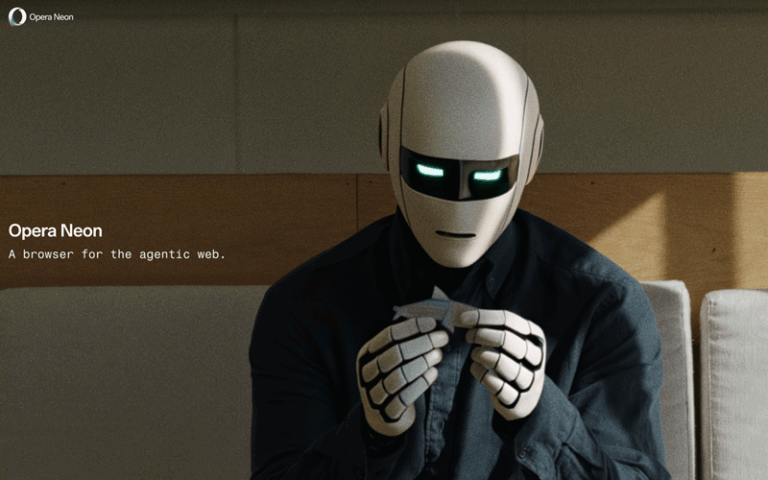Fifth most popular browser company Opera has struck up the orchestra to announce Opera Neon, a new agentic browser that promises to rethink the role of the browser in the coming generation of the AI agentic web. While Chrome, Safari, Edge and Firefox lead Opera in market share, those stats are (arguably) skewed by mass-market non-technical users – Opera is thought to enjoy a stronger base of use among technologists, so this development could help the Norwegian company’s longer term status. Opera is also popular in Africa and Brazil, perhaps because of its data-saving features, support for older devices and tailored resources for local markets. So what chorus comes next in this refrain?
The Norse-techies behind Opera Neon say that this is a browser that can “understand users’ intent” and perform tasks for them. It will also help search the web, obviously. The software engineers at Opera claims that, to achieve this, Opera Neon introduces agentic AI browsing capabilities that go beyond traditional browsing and turn user intent into action.
“We’re at a point where AI can fundamentally change the way we use the Internet and perform all sorts of tasks in the browser. Opera Neon brings this to our users’ fingertips,” said Henrik Lexow, senior AI product director at Opera. “We see it as a collaborative platform to shape the next chapter of agentic browsing together with our community.”
Chatty Browser Experiences
Opera Neon users can “chat” using the browser’s native and integrated AI agent that allows them to search the web, get answers and contextual information related to the webpage they are on. They can also access most of the functions they have come to expect from an AI chat in a browser.
Opera Neon also comes with an AI agent previously known as “browser operator”, a technology that gives users the opportunity to automate routine web tasks (like filling forms, making hotel bookings and shopping – rather like we imagine an robotic process automation ‘forms-based’ bot to work) and have the browser tasked with “understanding and interacting” with the content of web pages.
Neon performs these tasks locally in the browser, preserving users’ privacy and security.
Working ‘Beyond The Browser’
“Opera Neon allows the early adopter community to try out something never before seen in a browser – a complete AI engine capable of understanding and interpreting what the user wants to make and creating it for them,” said Lexow and team.
The Opera man points to Neon’s ability to employ AI agents that “work beyond the browser” i.e. in a virtual machine hosted in the cloud, that can continue working on the users’ creation even when they go offline.
Opera Neon users can, for example, ask the browser to make a game, a report, a snippet of code, or even a website – it will research, design and build whatever users need. Opera Neon can even be asked to make multiple things at the same time – enabling true agentic multitasking right in the browser.
Opera Neon is a premium subscription product. Early adopters can join the waitlist here..
